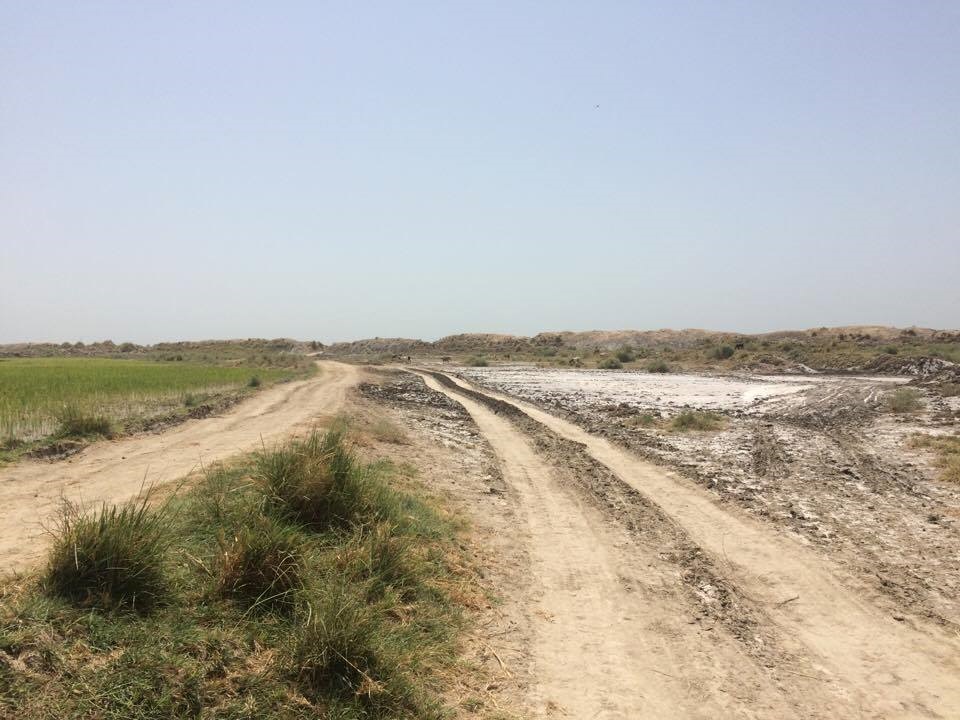

By Marvi Ahmed
It was a hot, dusty day in Larkana as our car traversed through the fields, river banks lined with wild foxtail grass dancing in the dry air, the pale white providing a sense of relief from the blinding green of rice paddies for miles on end.
We were on our way to a settlement, identified through an extensive monitoring exercise for the on-going Poverty Scorecard (PSC) survey for the SUCCESS programme. While referred to as a survey, it is more of a census, where the implementing partners have promised carpet coverage of all rural households in a given district. That means, each enumerator goes house to house, knocking on their doors to learn just a little more about their lives. The PSC forms the entire basis for the programme and on what all the activities will be based on for the next five years. The importance of reiterating this here is the need to stress that indeed, every household will be surveyed. It is only fair.

Now that the PSC survey is nearing completion, the Union Council’s marked as completed require post-verification. Pertinent questions to ask at this point include: have the numbers that we have estimated from the data available at hand been accurate? Does it match ground reality? Have we, for any reason, left any household uncovered?
As the PSC survey is being carried out through android technology coupled with GPS tracking of each household, it is fairly simple to map the surveyed households with their GPS coordinates on Google Earth. By doing so, one can get a bird’s eye view of the settlements, their coverage, and identify gaps where they exist. By carrying out this exercise, a couple of uncovered settlements were identified. Upon further investigation, some were ruled out as being covered in another Union Council, and others as urban settlements where the survey was not to take place.
After this narrowing down process, we were set on our way to the settlements about which doubts remained, equipped with our maps in hand. Upon arriving, the village notables gathered to greet us and inquire why we are here and where we are from. We duly informed them of the organisation we are affiliated with, why we are gathering information and inquire whether our team of enumerators came here to survey them. After satisfying their suspicions, they answered our questions and said no team had visited. We cross verified the information with their CNICs, and the field teams noted the location of the settlement to follow up on and survey.

The settlement was small, roughly 20 households, and tucked away in a nook amidst the vast fields surrounding them. Looking slightly beyond the horizon, we spotted another small cluster of houses; cross checked with our maps and decided to pay a visit. The roads (or lack thereof) were rough, bumpy and narrow with hardly any place to walk let alone a car slugging its way through. With pushes and shoves we made it as close as we could and decided to walk over instead. The topography was varied; green wild fields, white with large salt patches and barren dusty bush land, all encompassed in one frame.
One could not help but think: I could barely even get here, there seem to be no facilities for miles on end, and yet some choose to call it home. We almost felt like we’d stumbled upon a group of forgotten people and failed to recall for a moment that we were development professionals just doing our jobs and not full time investigators out of some movie. What was more alarming was that these people may not have been forgotten at all, as they all had valid government issued identification. How else could politicians get them to vote? When it comes to gaining power, once a year or once every five years, they will come find you. They will make sure that they pile you into buses, slug through to your locality and take you to vote. But once that’s over, so are you. You go back to being as good as forgotten, and the ones voted for owe nothing to their constituents.
They were counted, but only to the extent of their usefulness to those doing the ‘counting’. Instances like these help you detach yourself for a moment from the technicalities of your work and help you realise that what you do must be different from what’s been done. We were counting them too, but the point this time is to really make it count, for them.
For at the end of the day, it’s all about them. We’re just the number crunchers.
Marvi is the Monitoring & Evaluation Officer for the SUCCESS Programme.